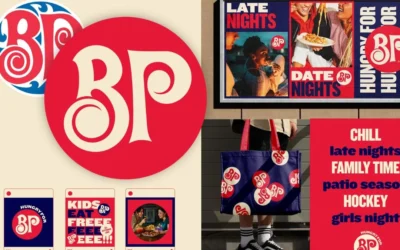During a House subcommittee hearing this morning, Ticketmaster Entertainment CEO Irving Azoff reiterated his disdain for the secondary ticketing market and said that he would consider selling the company’s TicketsNow reselling operation if it might help assuage concerns over Ticketmaster’s proposed merger with Live Nation.
Azoff acknowledged that Ticketmaster’s TicketsNow subsidiary has experienced some problems in recent weeks as a result of the handling of some Bruce Springsteen ticket sales, which prompted its recent settlement with New Jersey Attorney General Anne Milgram. Ticketmaster is also facing multiple class action lawsuits in Canada as a result of some of its alleged business practices with TicketsNow.
“I’m still waiting for an offer from Sen. [Charles] Schumer [D-NY],” Azoff joked to the members of the House Subcommittee on Courts and Competition Policy, because Schumer has called for the company to sell the subsidiary. “But yes, I would consider selling it if the right deal came along.”
Today’s hearing before the House subcommittee was markedly different from Tuesday’s Senate subcommittee hearing on the proposed merger, where the two companies were outnumbered by critics of the deal. During Thursday’s hearing, Ticketmaster and Live Nation received support from Peter Luukko, President and Chief Operations Officer of Comcast-Spectacor in Philadelphia, PA, and Vanderbilt University Associate Professor of Management Luke Froeb, both of whom believed the proposed merger could benefit the concert industry, fans and artists. Froeb also said the proposed deal could significantly help innovation and technology throughout the industry.
“In my positions at SMG, Comcast-Spectacor and Global Spectrum, I have come to understand the benefits of having a vertically integrated live entertainment business,” Luukko said, reading from a prepared statement, adding later that he believed the deal could create opportunities for his company and others. “By being part of a company that owns, manages, and/or operates venues, owns several sports teams and other content, and provides its own ticketing solution and food and beverage services to arenas, stadiums and amphitheatres throughout the country, we have the ability to cross-promote among these different levels in the vertical distribution chain and to touch the fan directly at multiple points in his or her sports/entertainment experience. Additionally, because we have more assets in some cities like Philadelphia, we have the ability to create unique packages to offer to sponsors and fans alike. This is where the industry trend is clearly moving—in large part because content providers want to have more direct control of the connection to their fans.”
Rep. Bill Pascrell, Jr. (D-NJ), who opposes the deal, said he joins Schumer in demanding Ticketmaster sell TicketsNow, but went further by stressing how the deal would potentially be bad for the American people.
“This deal is a naked attempt to dominate the concert business, stifle competition and prevent anyone else from entering the market,” Pascrell said, calling Ticketmaster greedy in virtually all aspects of its business practices.
Pascrell asked rhetorically that if the deal is allowed, and the publicity dies down, would the two companies do the right thing by consumers? “I think that when you consider the actions of Ticketmaster, and the actions of Live Nation, the answer is a definitive no,” he said.
Rapino sought to clear up some misconceptions about his company, stressing that it only makes $4 out of a $100 price for the ticket, and that Live Nation loses $70 million annually at the gate for the 1,000 amphitheater shows it produces each year. He also backed up Azoff’s negative view of the secondary market, saying he would like to “see ticket scalping outlawed” and eliminated.
“We spend $2 billion each year on promoting and producing artists for a 4 percent margin on ticket sales, but we don’t see a dime from the secondary market,” Rapino said.
“The first step to fight scalping would be if dynamic pricing came into the market,” Azoff said.
Subcommittee Chairman Rep. Hank Johnson said that the two companies have claimed that ticket prices will not go up as a result of the merger. “This statement, in my opinion, has limited believability,” he added.
If the proposed deal goes through, Rapino said its current ticket operations partner, CTS Eventim of Germany, would be allowed to terminate their arrangement if Live Nation and Ticketmaster merged, and Azoff said that rival promoter AEG Live recently wrote them a letter that it intends to terminate their relationship, also.
“We intend to be a Switzerland-type of distribution channel for the industry,” Azoff said, describing the goal of the merged companies.
Both Rapino and Azoff said that both companies would survive if the merger were not allowed, and added that they did not believe they would need to lay off employees if the deal is allowed. The company’s said they expect to save $40 million by merging, but they said they did not think that saving would come through layoffs.
“Ticketmaster needs to become the Amazon.com of tomorrow,” Rapino said.
Washington, DC-based attorney Robert Doyle, Jr. and Ed Mierzwinski, Consumer Program Director for U.S. PIRG, the Federation of Public Interest Research Groups, both oppose the deal, and stressed that combined companies would force out smaller competitors.
“This deal would eliminate competition in the primary ticket services market; reduce competition in the secondary ticket services market; reduce competition in the management of top tier artists; and reduce competition in the concert promotion industry,” Doyle said.
Mierzwinski said all anyone has to do is look back to the 1990s when the band Pearl Jam took on Ticketmaster, and subsequently was unable to mount a large-scale tour, despite the band’s popularity at the time, and it was treated with disdain by the industry scared to butt up against Ticketmaster. Artists could potentially face similar problems in the future if the deal is allowed.
In fact, five unnamed artists supposedly wrote letters on behalf of Ticketmaster supporting the deal, four of whom are represented by either Ticketmaster or Live Nation, Johnson noted, but no artists publicly opposed the deal except for Springsteen. Johnson said this could be because they feared their careers could suffer if they publicly opposed the merger.
“This merger eliminates the only creditable competitor Ticketmaster had,” Doyle said. “Ticketmaster clearly felt threatened by Live Nation.”




